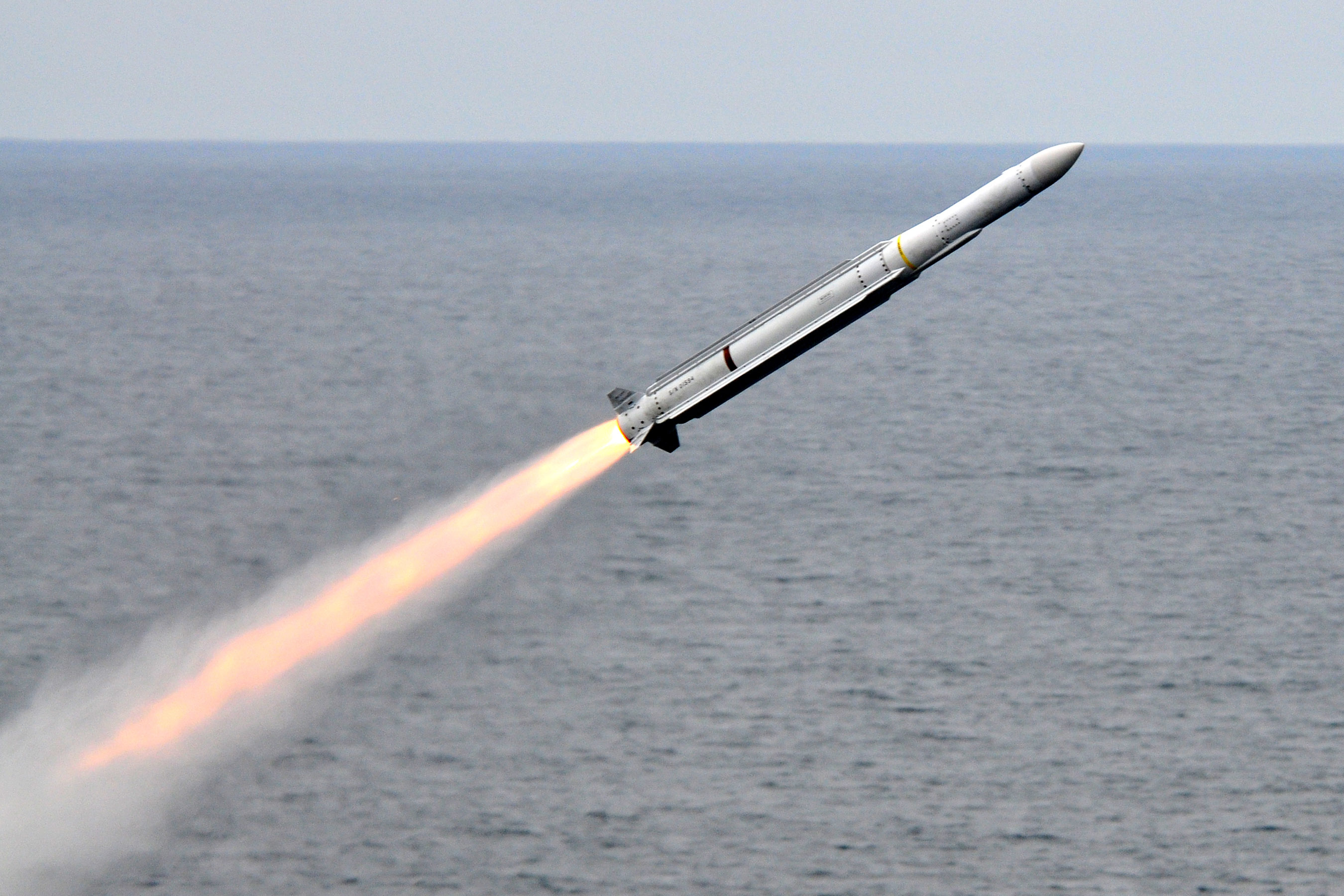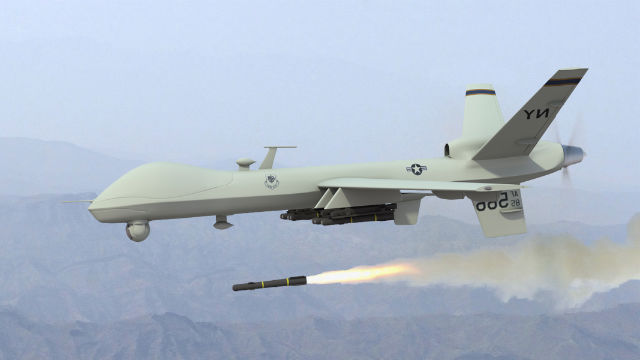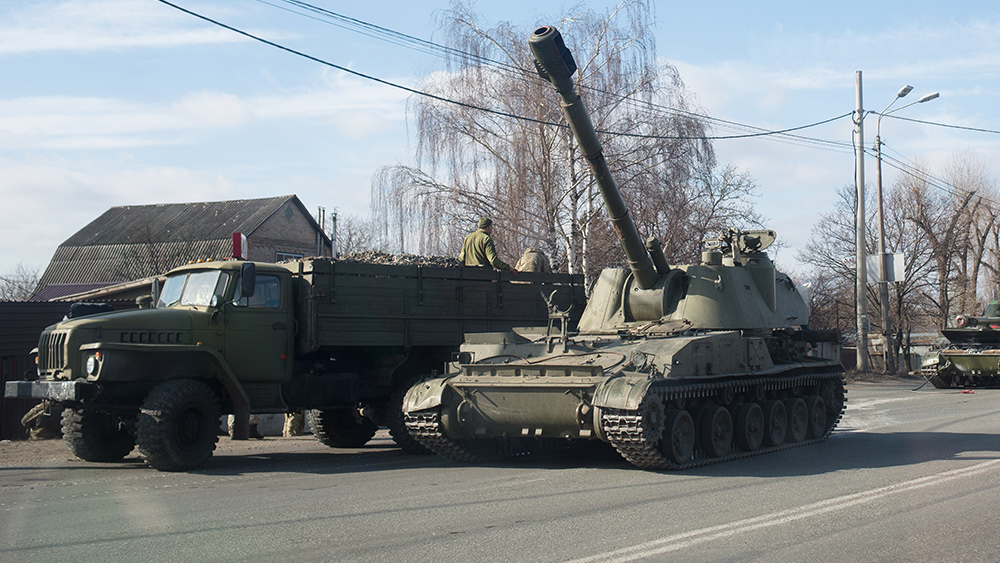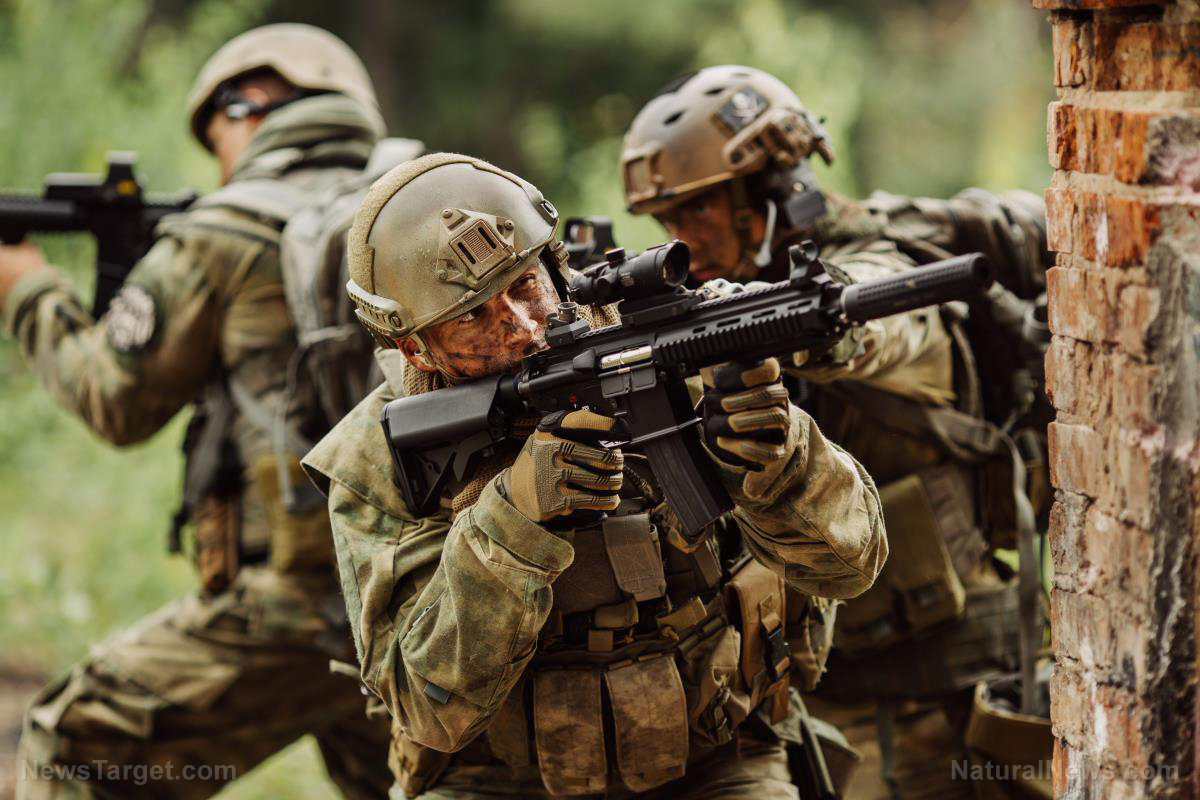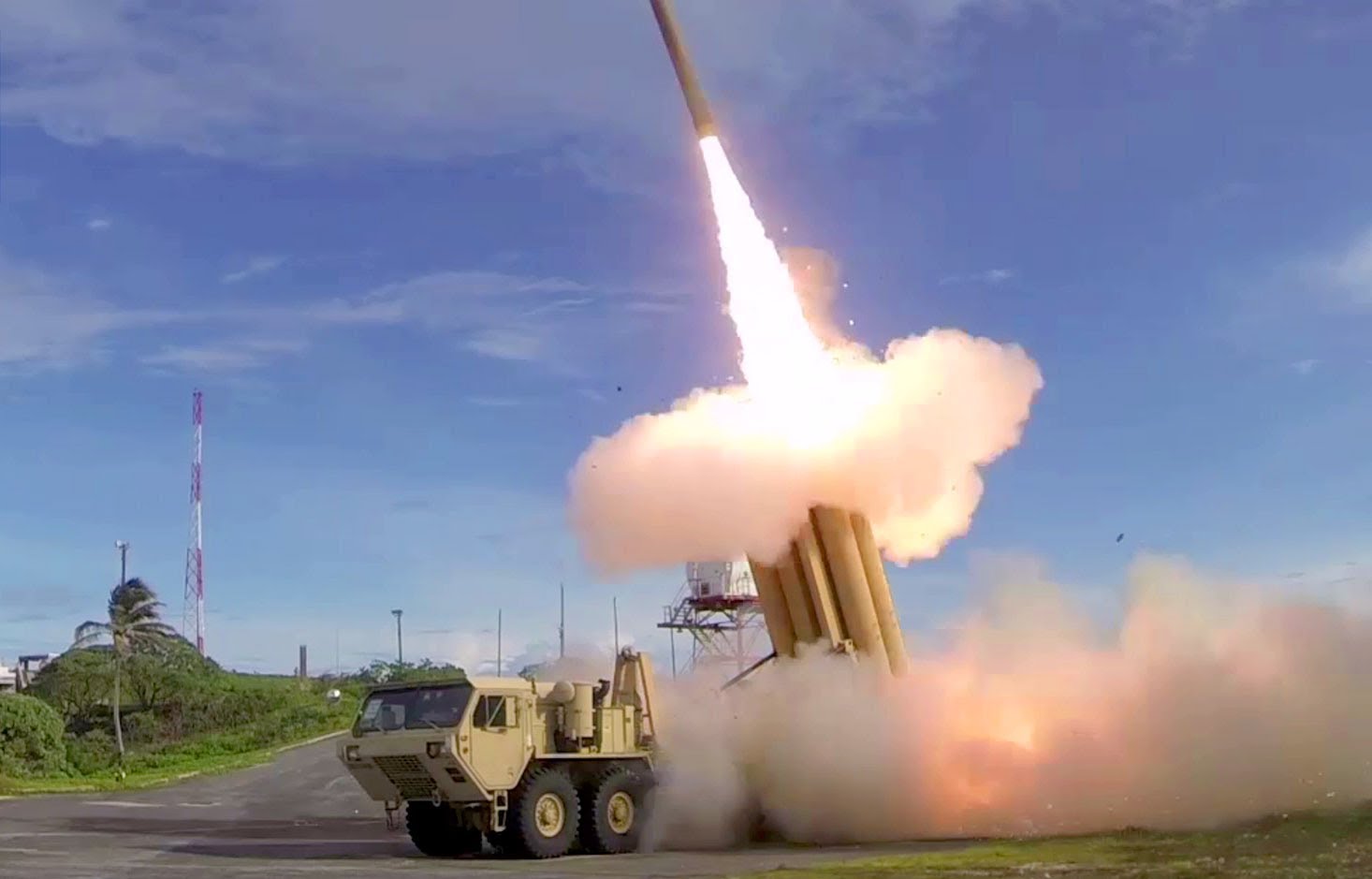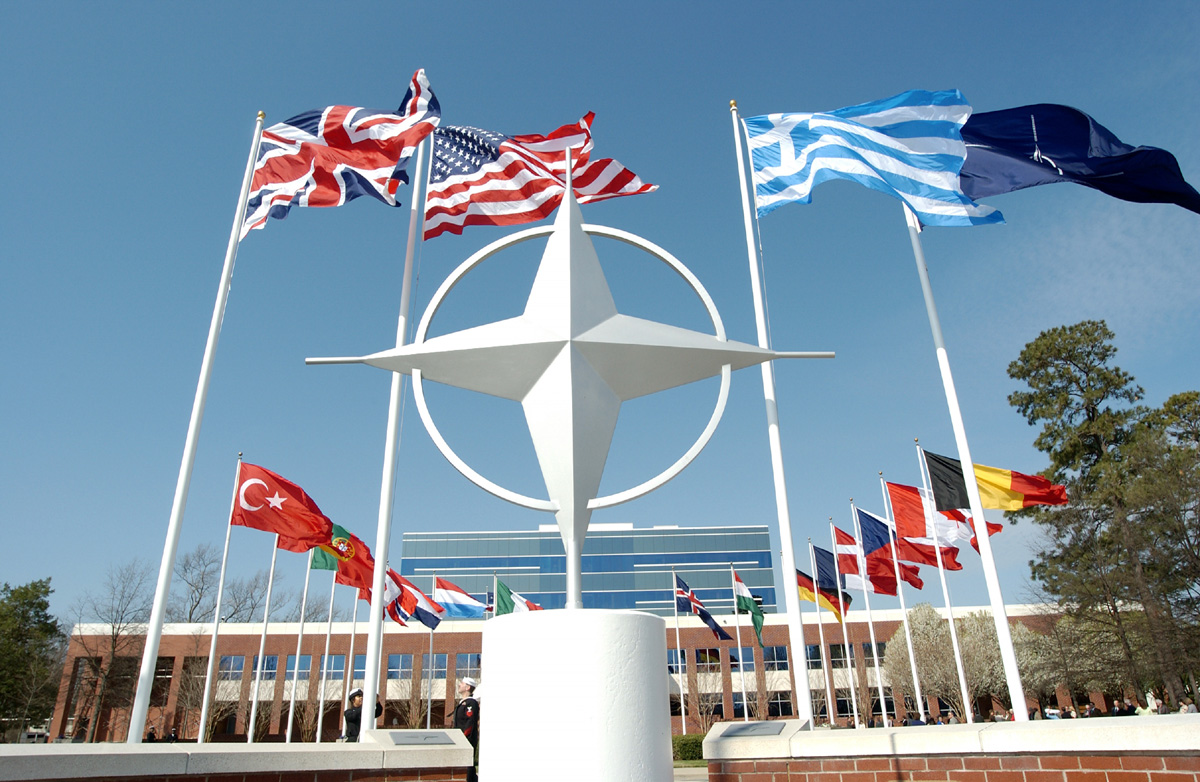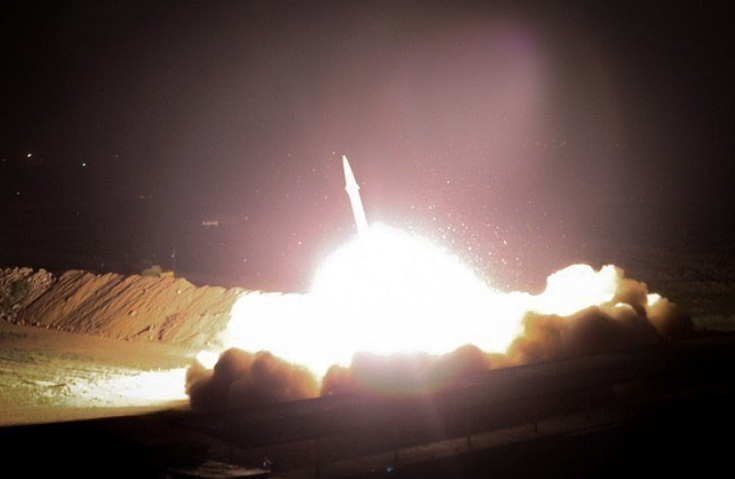U.K.’s flagship aircraft carrier, the HMS Queen Elizabeth, bows out of NATO exercises following propeller failure
02/07/2024 / By Richard Brown
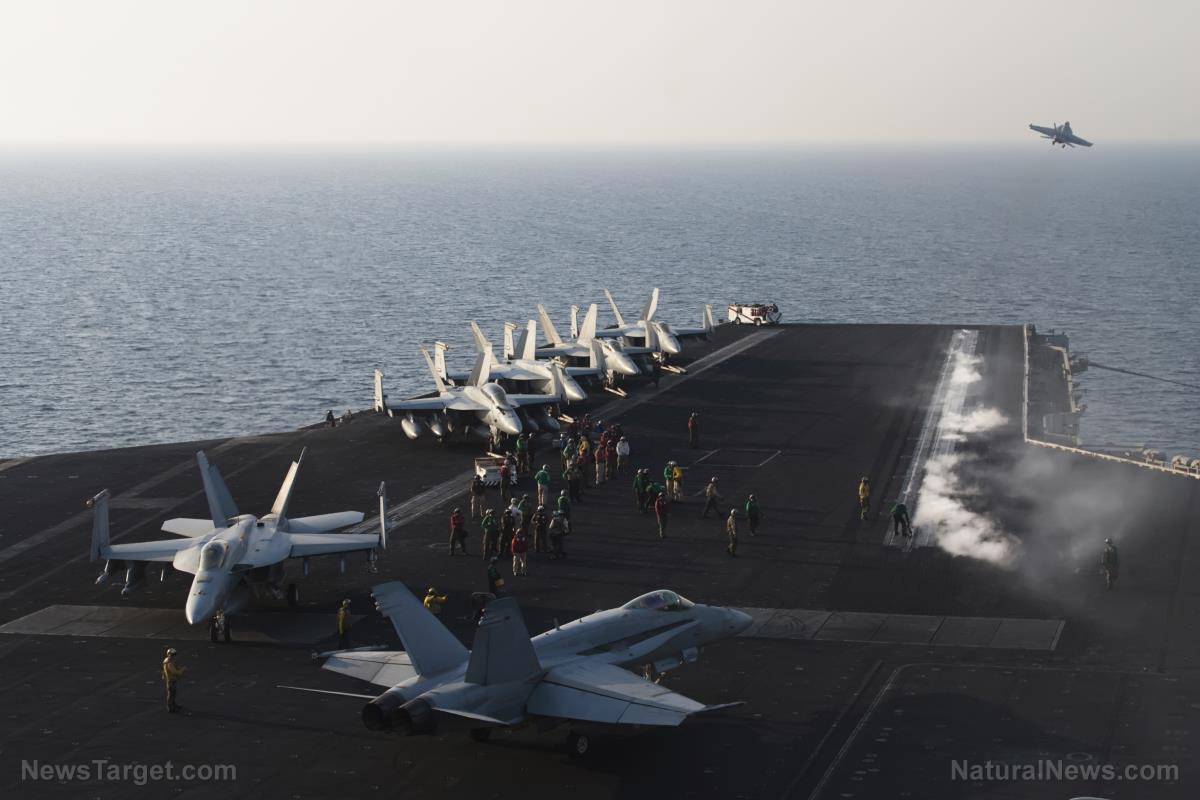
The HMS Queen Elizabeth, the flagship aircraft carrier of the British Royal Navy, broke down during recent North Atlantic Treaty Organization (NATO) exercises, highlighting the challenges faced by the United Kingdom in its desire to maintain a world-class navy.
Valued at $3.7 billion, the carrier had to withdraw from the largest NATO naval drills since the Cold War due to a discovered propeller issue. This setback comes 18 months after the Queen Elizabeth’s sister ship, the HMS Prince of Wales, encountered a similar problem. (Related: NATO to hold biggest military exercise since the Cold War amid rising tensions with Russia.)
The timing of these mechanical failures is crucial, given the U.K.’s expanding naval commitments, such as providing protection to vessels in the Red Sea targeted by Houthi rebels and addressing Chinese aggression in the South China Sea and Russian aggression in the Black Sea amid the conflict in Ukraine.
Former navy commander Tom Sharpe expressed concerns that the malfunction could mean the U.K. will no longer send a carrier to the Red Sea.
Readiness for combat of British Armed Forces questioned
The breakdown further raises questions about the readiness and capabilities of the U.K.’s military forces.
Additionally, the House of Commons Defense Select Committee highlighted in a recent report how the British Armed Forces is consistently overstretched and putting unrelenting pressure on personnel and materiel. One grave concern for the Royal Navy is the shortage of available vessels and inoperable naval equipment.
Despite these challenges, the Defense Ministry asserts that the military is meeting its commitments, emphasizing the readiness of the armed forces to protect and defend the United Kingdom.
However, the issues extend beyond flagship vessels, as smaller ships have encountered problems, including collisions off the coast of Bahrain. Experts have warned about the state of the British navy, suggesting a dissonance between military ambitions and capabilities.
The risk of being drawn into a conflict without sustaining a presence exposes strategic weaknesses, according to Richard Barrons, a former head of the U.K.’s armed forces. The breakdown of HMS Queen Elizabeth adds urgency to addressing maintenance issues and ensuring the robustness of the U.K.’s naval capabilities.
The impact of the armed forces “hollowing out” since 2010 has eroded the country’s war-fighting resilience, creating concerns about its ability to engage in a prolonged, all-out war. The committee emphasized that operational pressures and an unrelenting tempo have led to a drop in retention, coupled with recruitment difficulties, resulting in a cycle that exacerbates the crisis.
Committee chair Jeremy Quin underscored the need for an intense ongoing focus on readiness for high-intensity warfighting, stating that while the military can deploy quickly, its preparedness for extended conflicts demands more attention. The recruitment crisis has been exacerbated by continuous pressure on personnel, leading to a situation where more individuals are leaving the armed forces than joining.
Efforts by the Defense Ministry to address these challenges were criticized for their slow pace, with reports suggesting that a lack of strategic management of resources, including stockpiles, has contributed to the problem. The committee urged the ministry to adopt a more strategic approach to ensure effective deterrence in the face of heightened geopolitical instability.
Defense Secretary Grant Shapps has acknowledged the changing global landscape, emphasizing the need for the U.K.’s entire defense ecosystem to be ready. He reassured that troop numbers would not dip below 73,000 under the Conservative government, addressing concerns about potential cuts.
Watch this clip of two Royal Navy minesweepers – the HMS Chiddingfold and HMS Bangor – colliding into each other while berthing in Bahrain.
This video is from the Cynthia’s Pursuit of Truth channel on Brighteon.com.
More related stories:
U.K. deploys troops to NATO military drills while ramping up aid to Ukraine.
DESPERATE: U.K. Navy now running help wanted ads for admiral positions.
Unable to recruit more new troops, undermanned British Royal Navy forced to DECOMMISSION WARSHIPS.
Sources include:
Submit a correction >>
Tagged Under:
aircraft carrier, big government, chaos, collapse, dangerous, Glitch, HMS Queen Elizabeth, military exercises, military technology, national security, NATO, North Atlantic Treaty Organization, panic, preparedness, Royal Navy, self-defense, United Kingdom, weapons technology, World War III
This article may contain statements that reflect the opinion of the author
RECENT NEWS & ARTICLES
COPYRIGHT © 2018 MILITARYTECHNOLOGY.NEWS
All content posted on this site is protected under Free Speech. MilitaryTechnology.news is not responsible for content written by contributing authors. The information on this site is provided for educational and entertainment purposes only. It is not intended as a substitute for professional advice of any kind. MilitaryTechnology.news assumes no responsibility for the use or misuse of this material. All trademarks, registered trademarks and service marks mentioned on this site are the property of their respective owners.


